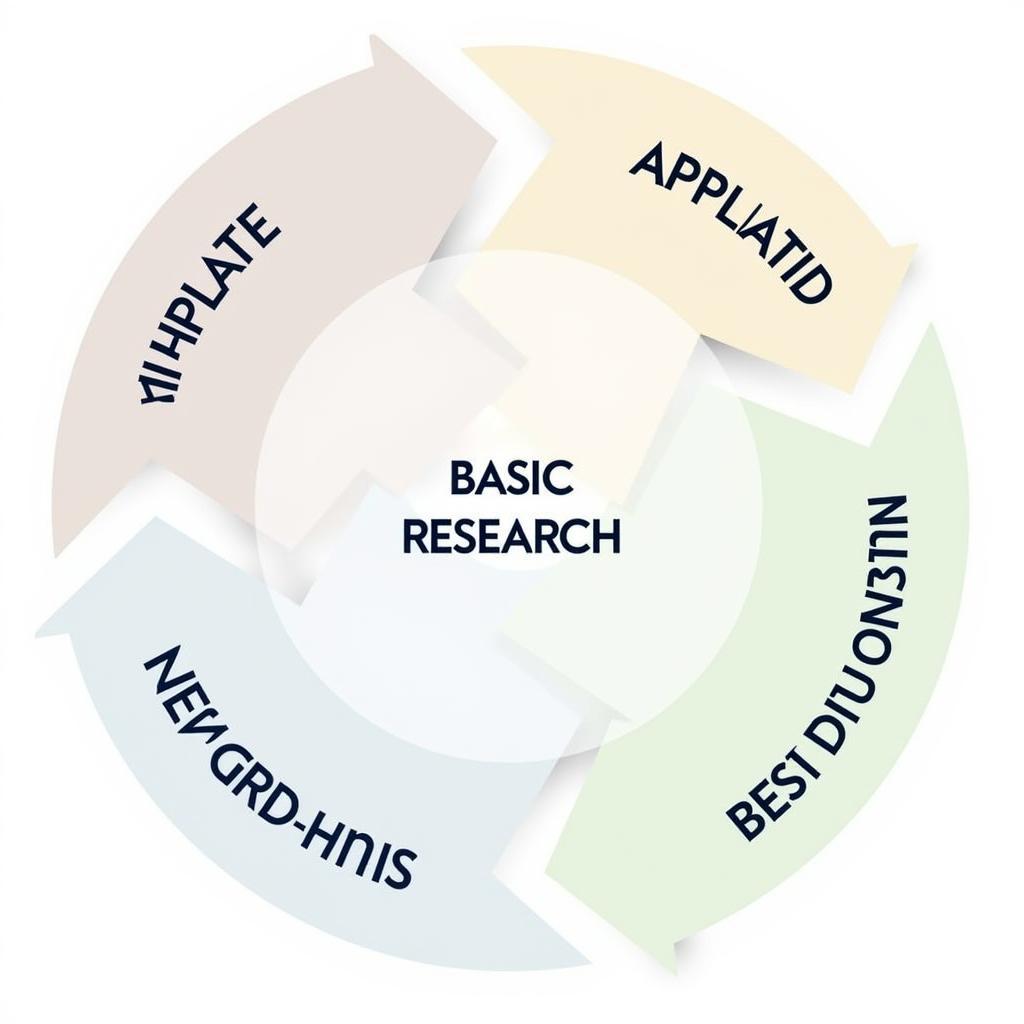The world of paranormal research is often shrouded in mystery, with many questioning the validity and scientific rigor of its methods. A key distinction to understand is the difference between Applied Vs Basic Research, two fundamental approaches that drive our quest to understand unexplained phenomena.
 Applied vs Basic Research in Paranormal Investigation
Applied vs Basic Research in Paranormal Investigation
Delving into the Unknown: Basic Research
Basic research in paranormal investigation seeks to expand our understanding of fundamental principles without immediate concern for practical applications. It’s about asking the “what” and the “why” behind strange occurrences, exploring uncharted territories of knowledge.
For instance, researchers might focus on:
- The nature of consciousness: Investigating whether consciousness can exist independently of the physical body, perhaps through studies on near-death experiences or mediumship.
- The existence of psychic abilities: Exploring phenomena like telepathy, clairvoyance, or precognition, attempting to establish their existence and understand the mechanisms behind them.
- The properties of energy fields: Examining the potential role of electromagnetic fields or other unknown energy forms in paranormal activity, using tools like EMF meters and EVP recorders.
This type of research, while lacking immediate practical use, lays the groundwork for future exploration and may eventually lead to groundbreaking discoveries that reshape our understanding of the paranormal.
Seeking Solutions: Applied Research
Applied research, on the other hand, takes the knowledge gleaned from basic research and seeks to find practical applications for it. It’s about addressing specific problems, finding solutions, and developing tools and techniques based on our understanding of the paranormal.
Let’s consider a few examples:
- Developing new ghost hunting equipment: Using knowledge about electromagnetic fields and their potential link to spirit communication, researchers might develop more sensitive and reliable EMF detectors or EVP recording devices.
- Improving psychic abilities: Understanding the psychological and physiological factors that influence psychic abilities could lead to the development of training programs or techniques for enhancing these abilities.
- Developing methods for energy healing: If specific energy fields are found to influence human health, applied research could focus on developing techniques to manipulate these fields for therapeutic purposes.
Bridging the Gap: Where Basic and Applied Research Intersect
While distinct in their immediate goals, applied and basic research are not mutually exclusive. In fact, they often work in tandem, with discoveries in one area informing and influencing the other.
 The Interplay of Applied and Basic Paranormal Research
The Interplay of Applied and Basic Paranormal Research
For instance, the development of a new, more sensitive EMF meter (applied research) might lead to the discovery of previously undetectable energy patterns in haunted locations (basic research). This, in turn, could fuel further advancements in equipment design, creating a continuous cycle of discovery and innovation.
Conclusion: Advancing Paranormal Understanding Together
Both applied and basic research play a crucial role in advancing our understanding of the paranormal. While basic research explores the fundamental “what” and “why”, applied research seeks the “how”, translating knowledge into practical applications. By embracing both approaches, we can continue to unravel the mysteries of the paranormal and shed light on the unknown.
FAQs About Applied vs Basic Research
1. Is one type of research more important than the other?
Not necessarily. Both applied and basic research are essential for advancing our understanding of the paranormal. They work together, with discoveries in one area often influencing the other.
2. What are some examples of successful applied research in the paranormal field?
The development of EVP recording devices and more sensitive EMF meters are examples of applied research that have directly impacted the field of paranormal investigation.
3. Does basic research always lead to practical applications?
Not always. Sometimes, basic research simply expands our understanding of a phenomenon without immediately leading to a practical application. However, this knowledge can be invaluable for future research and may eventually contribute to the development of practical tools or techniques.
4. How can I get involved in Paranormal Research?
There are many ways to get involved, from joining a local paranormal investigation group to conducting your own research.
5. What are some resources for learning more about applied vs basic research in the paranormal field?
You can find more information on applied v basic research on our website.
We also have articles exploring the difference between basic and applied research and what is an example of basic research for those interested in learning more.
Need Help Exploring the Unknown?
If you’re looking for answers or need assistance with a paranormal investigation, our team is here to help. Contact us today at 0904826292, email us at research@gmail.com, or visit our office at No. 31, Alley 142/7, P. Phú Viên, Bồ Đề, Long Biên, Hà Nội, Việt Nam. Our dedicated team is available 24/7 to assist you.